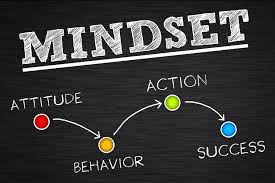Lifelete Fundamentals
February 11, 2015
Establishing new professional relationships is often the most influential factor in earning a new job or promotion. The first step to building professional relationships that will advance your career is getting yourself noticed by the right person. How you go about making yourself stand out will determine the success of your efforts. For instance, you could be remembered as the individual who sends out too many pestering emails or the gracious individual who is remembered for sending out handwritten thank you notes.
Whether you are attempting to get the attention of someone electronically, by phone or in person, these tips can help you develop a strategy for standing out in the right way.
- Manage your expectations – Remember that your primary objective in your first communication is to spark the interest of a particular individual and lay the groundwork for future communications. Requesting an interview or simply attempting to schedule a meeting or phone call in your first communication can appear overly aggressive or desperate. Consider these two statements. Which person would you rather speak with?
“I’m highly interested in learning more about your work, and will follow up with you next week to discuss.”
“I’m highly interested in learning more about your work, and would genuinely appreciate the opportunity to speak with you further.”
- Be a giver – One time-tested strategy for capturing the attention of someone is to offer a sincere compliment. Do your research ahead of time, and be prepared to congratulate the individual on a recent achievement. In addition, ask individuals how you can be of assistance to them as opposed to requesting assistance from them. Hold off on contacting someone until you are prepared to articulate how you can be of assistance to him or her.
- Establish common ground – People do business with people. Developing a personal relationship with another individual will increase the likelihood of establishing a business relationship down the road. Be prepared to discuss a mutual friend or shared hobby. Avoid using generic or “mass communication” language. If your message does not show that you have already invested your time in learning more about a particular individual or their business, people will be less likely to invest in learning about you.
- Demonstrate your value – People respond well to stories, especially when told in a concise manner. Be prepared to show evidence of your professional skills and achievements. In short, examples of professional skills are much more likely to be remembered than statements of professional skills.
To learn more on this topic, read How to Capture Someone’s Attention in 10 Seconds and Ways and Four Ways You’re Being too Aggressive in Your Job Search




